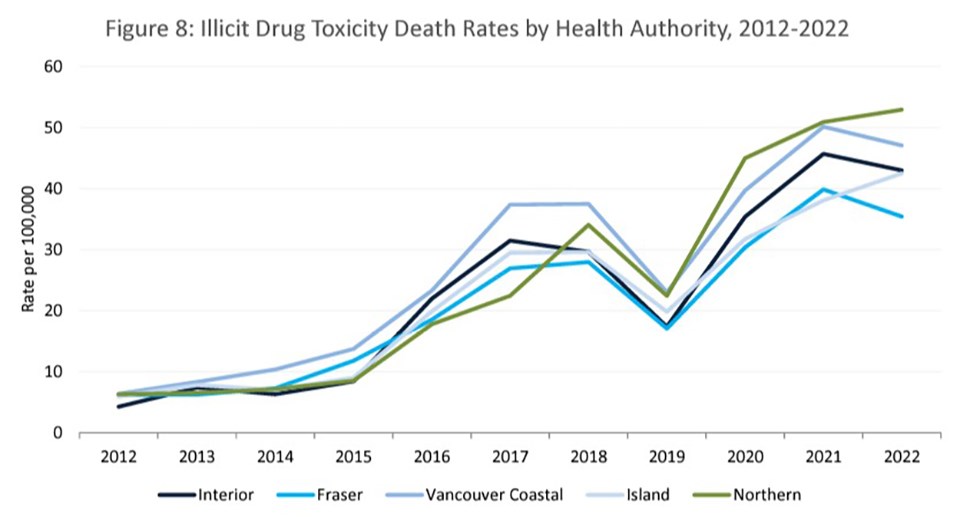There was an increase in Burnaby's total number of drug overdoses deaths involving illicit substances, the BC Coroners Service says.
In a report released today (Aug. 16), the service says the city's death toll is now 34 people between Jan. 1 and June 30, 2022.
That's two more from the last report published in July for the month of May.
A record 77 deaths were tallied in Burnaby in all of 2021.
Provincially, toxic illicit drugs claimed 146 lives in June — a decrease of 26 per cent drop from May (197) and 17 per cent compared to June last year (175).
To date in 2022, there have been at least 1,095 deaths recorded in B.C.
The number of illicit drug toxicity deaths in June equates to nearly five deaths per day.
"The ever-increasing toxicity of the unregulated, illicit drug market is taking a heart-breaking toll on the lives and well-being of members of our communities across the province," B.C. chief coroner Lisa Lapointe said in a news release.
"Deaths due to toxic drugs in the first half of 2022 have surpassed the number of deaths experienced in the same period in 2021, putting our province, once again, on track for a record loss of life."

The BC Coroners Service says the number of lives that have been lost between January and June of this year is the highest ever recorded during the first six months of a calendar year.
The province adds illicit drug toxicity is the number one cause of unnatural death in B.C. and second only to cancer in terms of years of life lost.
"Tragically, in the seventh year of this public heath emergency, as we are experiencing increasing numbers of deaths in July, our province has now lost more than 10,000 lives to illicit drugs since April 2016," Lapointe added.
"These were men, women and youth from all walks of life. They lived in our neighbourhoods, worked in our workplaces and played on our sports teams. Some lived ordinary lives, while others faced enormous challenges. All of them fell prey to the lethal supply of illicit drugs that is omnipresent. As recommended by the subject matter experts on the recent Death Review Panel, it is imperative that we urgently provide access to safer supply across our province. It's only when we drastically reduce people's reliance on the profit-driven, illicit drug trade, that we will save lives and turn the trajectory of this crisis around."
By local health area to date, the highest rates of death have been recorded in Lillooet, Mission, Terrace, Cariboo/Chilcotin and Powell River.




